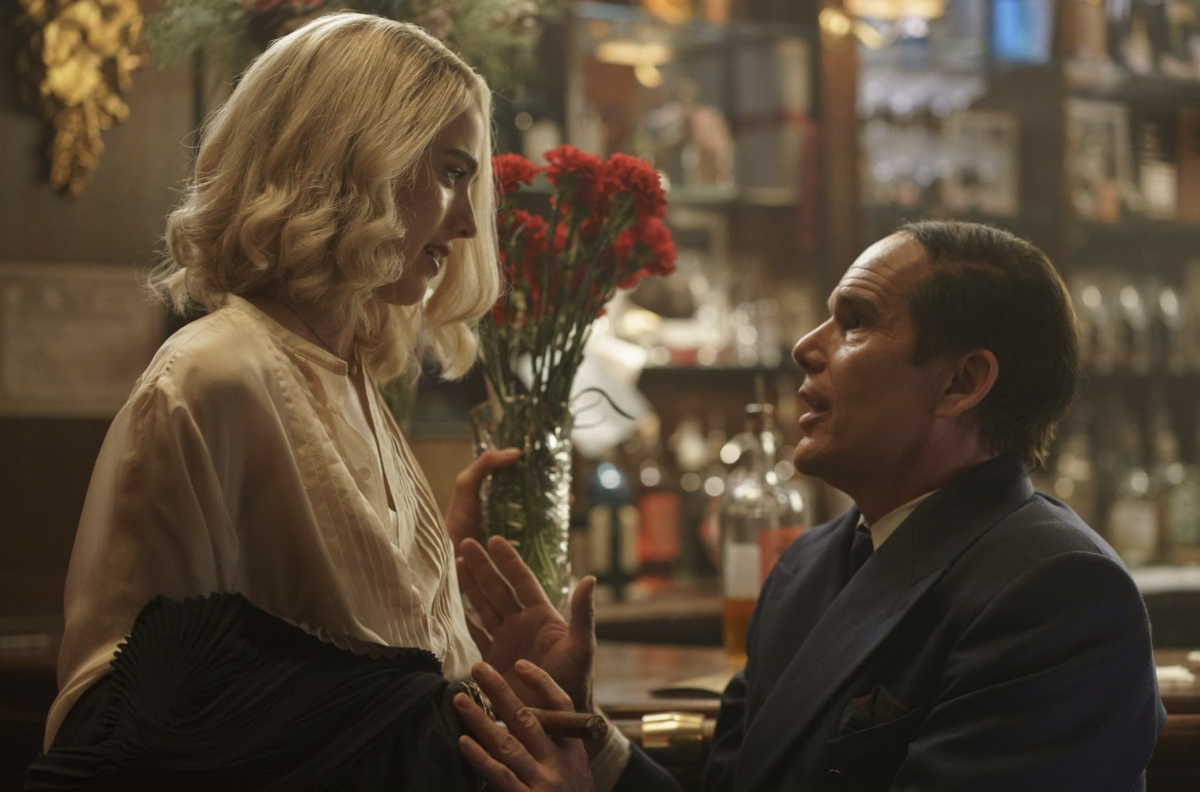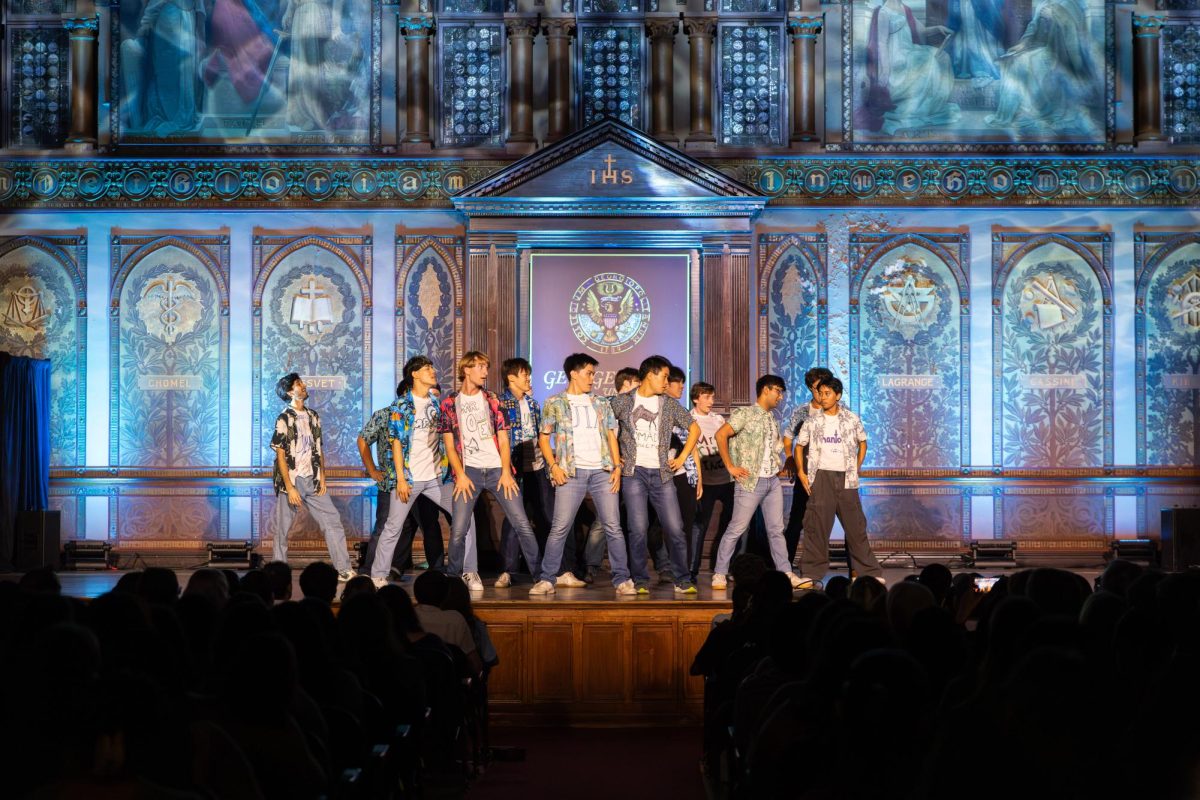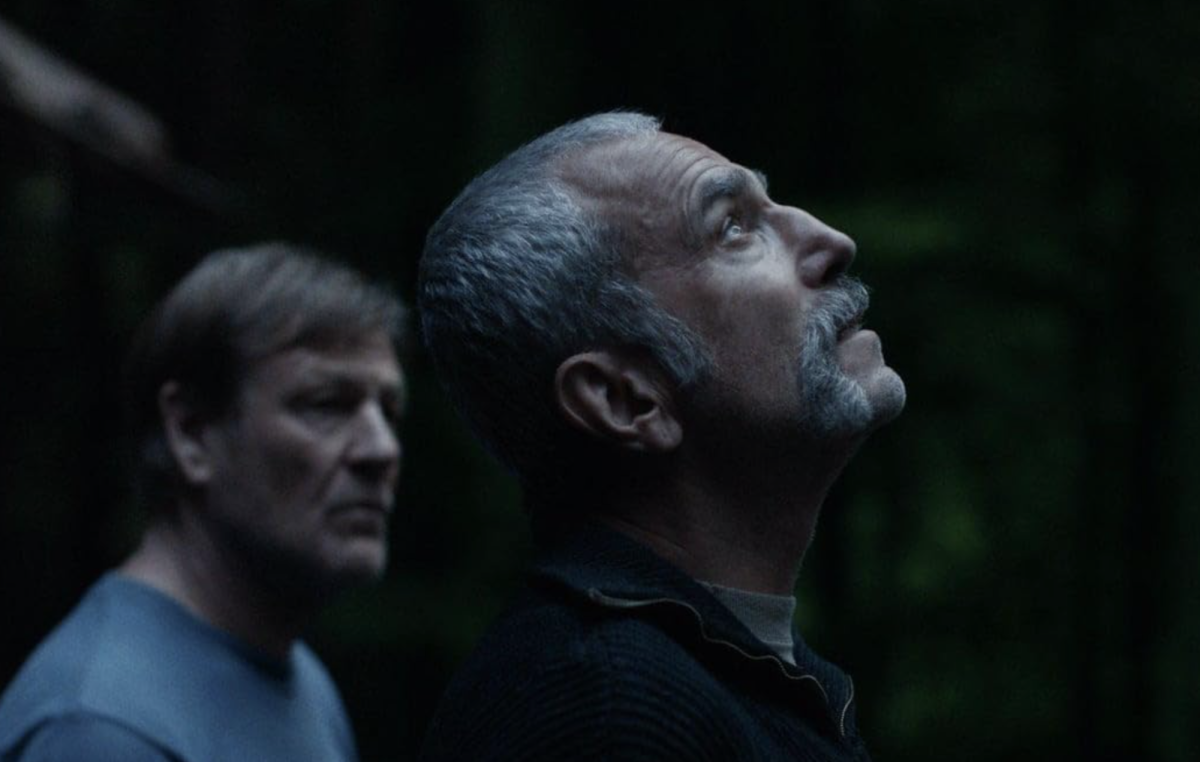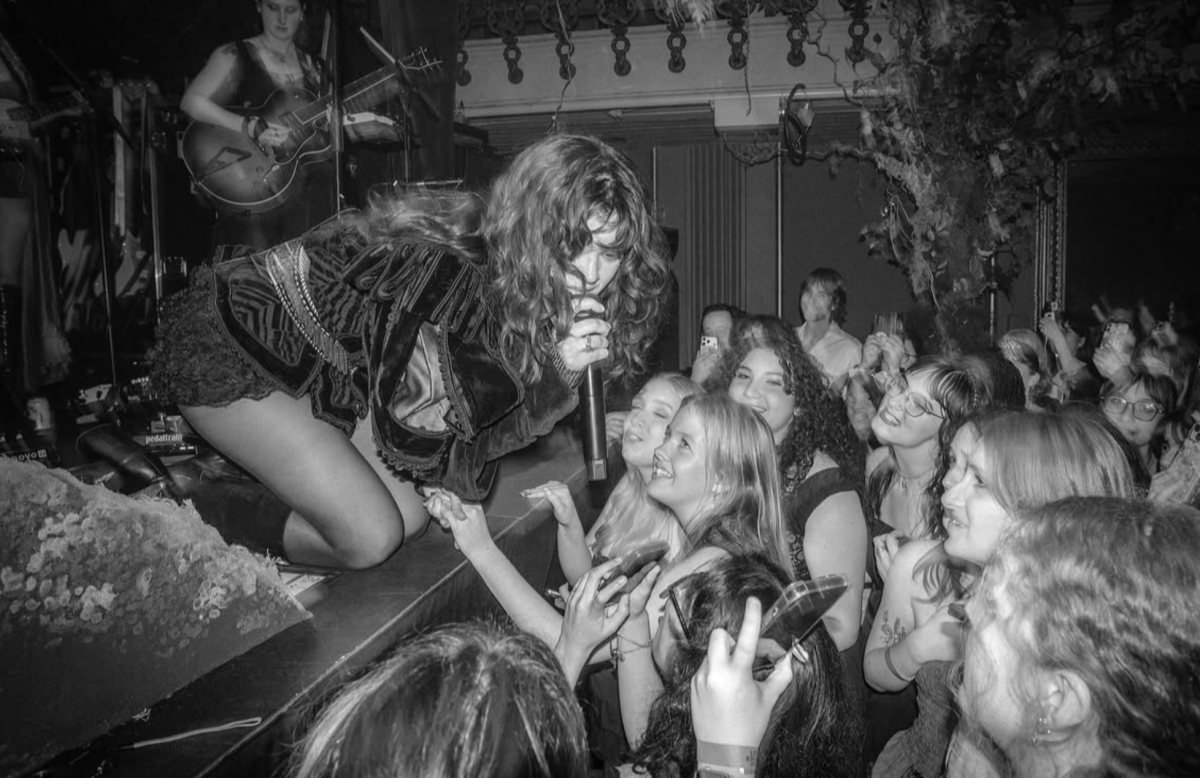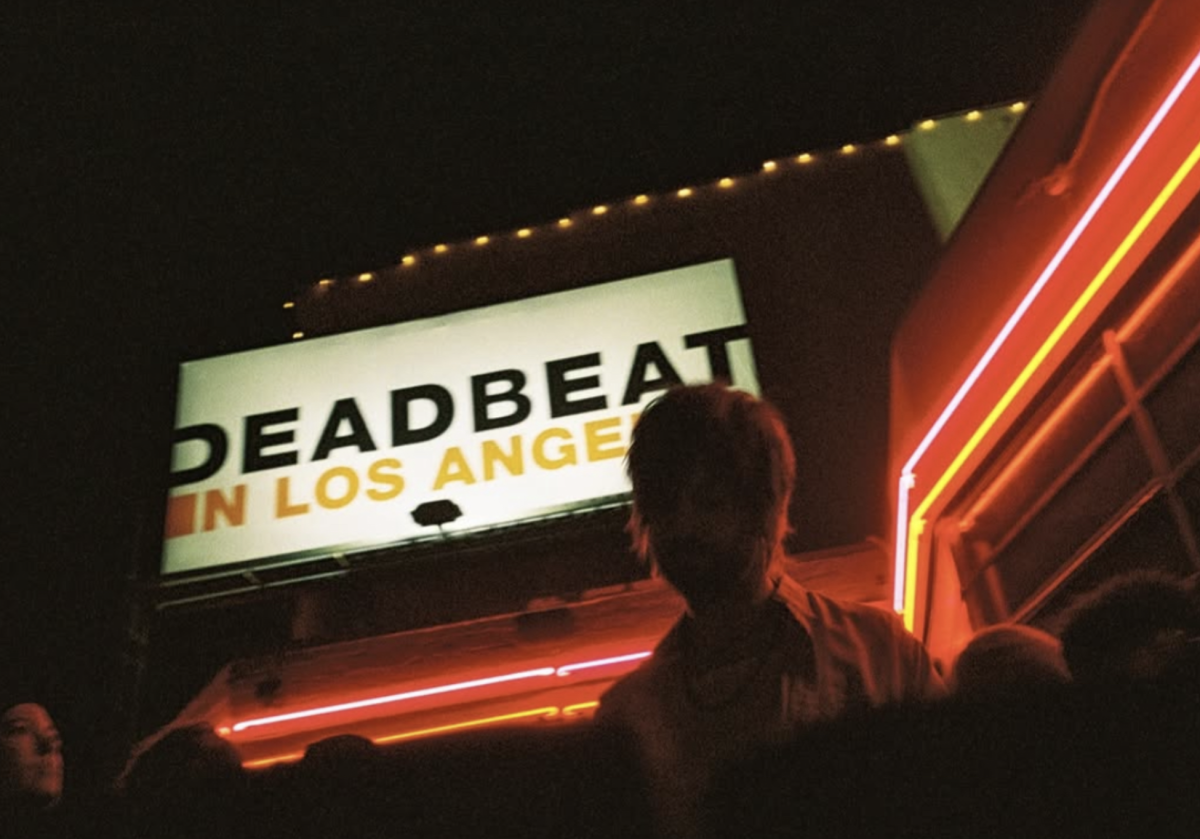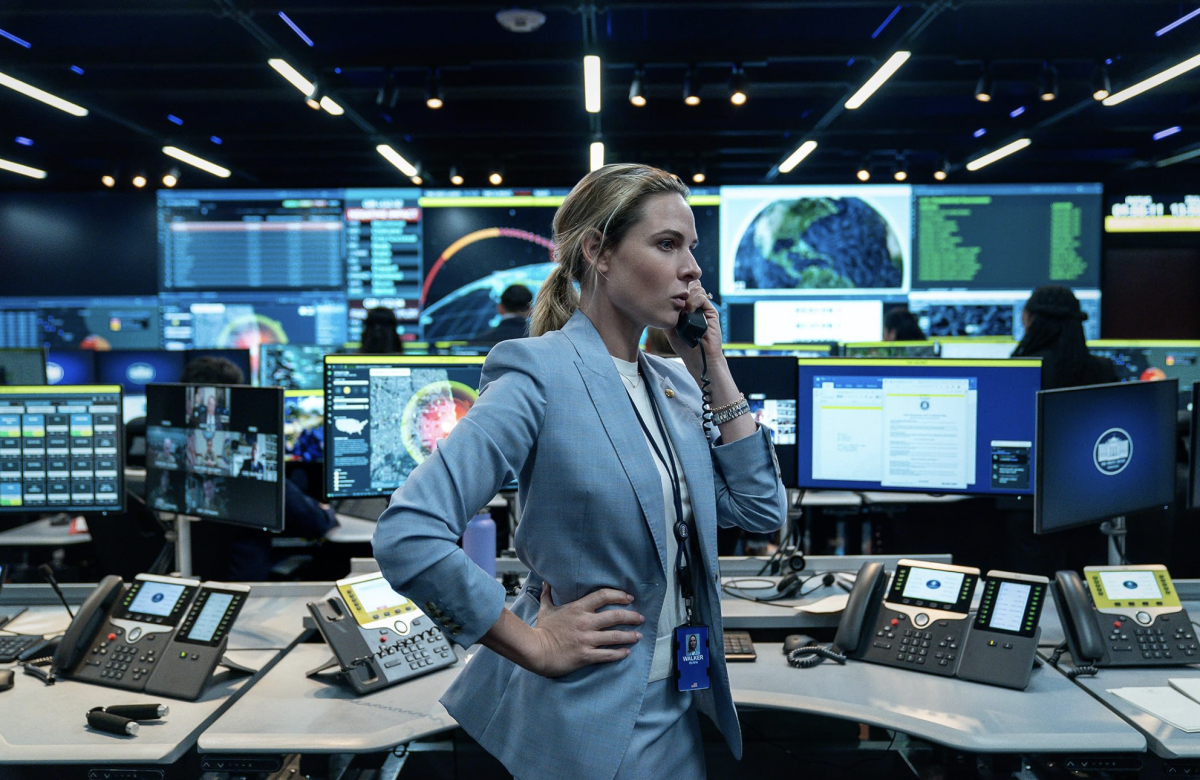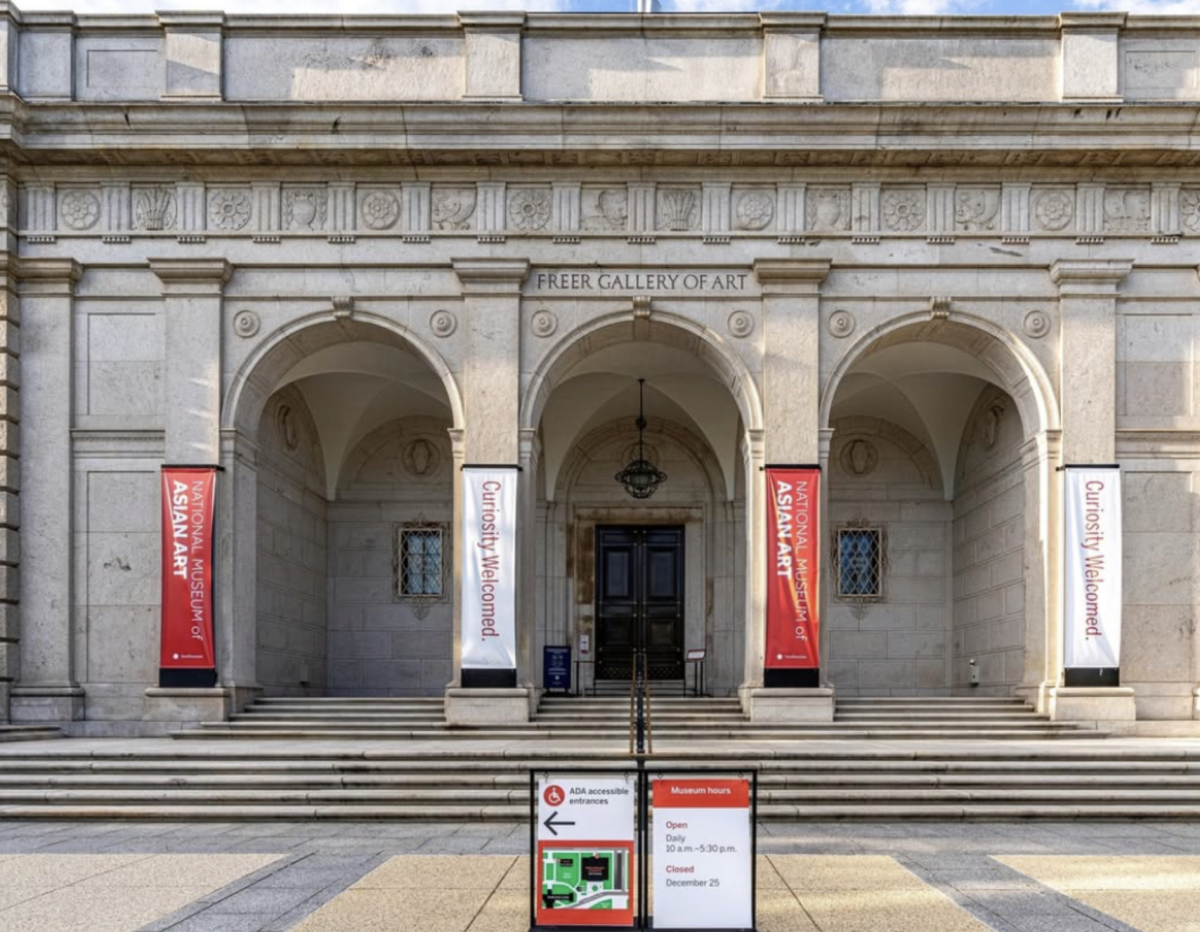
“Blue Moon,” directed by Richard Linklater, is an emotionally rich tribute to the life and works of Broadway songwriter Lorenz Hart (Ethan Hawke). It focuses on the night of the release of “Oklahoma!” the first musical that Hart’s creative partner, Richard Rodgers (Andrew Scott), produced without him. In true Linklater fashion, the film’s plot and pacing revolve purely around dialogue, allowing Hawke to delve into a poignant character study of Hart.
“Blue Moon” opens with Hart’s last moments alive as he stumbles drunkenly down an alleyway before collapsing. The film then shifts to several months earlier, when Hart — a middle-aged hopeless romantic who is deeply sensitive to rejection — angrily leaves the opening night of “Oklahoma!” and instead heads to a bar. Through his conversation with Eddie (Bobby Cannavale), the barman, it is revealed that he copes with the struggles of his demanding life as a lyricist by drinking heavily. His alcoholism and subsequent depression have made him inconsistent as a lyricist for Rodgers’s musicals, which pushed Rodgers to produce his “Oklahoma!” with lyricist Oscar Hammerstein II (Simon Delaney). As Eddie tries unsuccessfully to stop Hart from drinking throughout the night, Rodgers, Hammerstein II and other members of the production and audience start filing into the bar.
A very dialogue-heavy film, Hart’s on-and-off conversations with budding author E.B. White (Patrick Kennedy) throughout the night highlight his obsession with beauty and romance as well as writer Robert Kaplow’s strong screenplay. With this development in Hart’s character, the film’s ending is quietly devastating, as Hart ends up alone at the bar, the screen fading to black on his lonely form. The credits mention that Rodgers and Hammerstein would go on to have one of the most successful creative partnerships in musical history following Hart’s death from pneumonia several months after the opening of “Oklahoma!”
Throughout the film, we see Hart wracked with a doomed hopefulness. Hart falls in love with everything and everyone, not because he wants to, but because he is drawn to beauty, which is why he fawns over and idolizes the beautiful Elizabeth Weiland (Margaret Qualley). To him, she is the epitome of life’s beauty and everything it has to offer. Hart describes himself as “omnisexual,” drawn to anything that he finds beautiful in his life, be it a person, a book or a work of art. Hawke’s raw portrayal of a flawed man desperately clinging to anything that could give him the hope of being loved and considered for another day strikes a deep chord. The film neither romanticizes nor idealizes Hart’s struggles, providing a realistic character study that garners sympathy. His endless monologues make for a complex and challenging role, which Hawke executes to perfection, marking his performance of a lifetime. I found myself intensely drawn to Hart’s imperfections and his touching story.
However, Hawke’s performance was not the only outstanding one. Scott’s portrayal of Rodgers conveyed a sense of concerned pity, highlighting both Rodgers’ evident respect for Hart and his unwillingness to jeopardize his own future because of Hart’s uncertainty. Both Hawke’s and Scott’s performances aptly conveyed the complexity of the duo and the raw emotion felt in the wake of the opening-night events. Rodgers and Hart’s relationship is complicated, and their interaction is minimal, but it is still explored in great depth.
While the acting stood out the most, “Blue Moon” would not have achieved its timeless quality without its well-executed pacing and lovely cinematography. While the entire film is shaped around dialogue, providing little plot action as one would usually expect from a Linklater film, it allowed us to focus on Hart’s emotional development. This felt like a natural way to pace a film that would best be categorized as a character study. Hart’s philosophical ramblings really took root in the smoke-filled ambience of Sardi’s. The cinematography highlighted the bar’s warmth, magnifying and reflecting Hart’s longing for human connection.
Overall, the film is tinged with melancholy and nostalgia, yet it showcases the beauty and fragility of Hart’s idealistic soul, lost amid the harsh realities of the world. Anyone hoping for a touching story exploring the complexities of a troubled artist should look no further than Linklater’s excellent “Blue Moon.”


